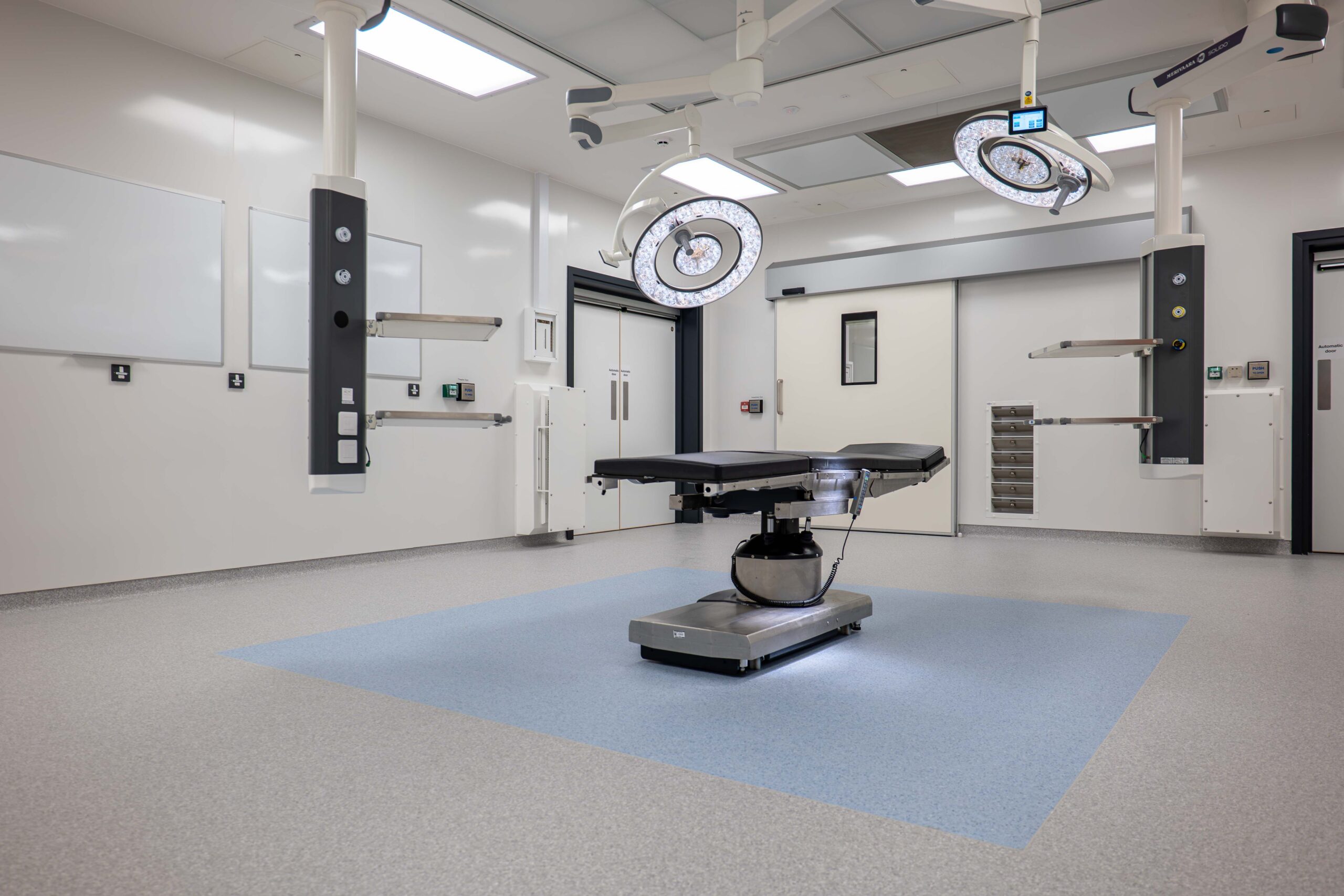Φαίνεται ότι βρίσκεστε στις Ηνωμένες Πολιτείες
Έχουμε έναν διαφορετικό ιστότοπο (www.q-bital.com) που ταιριάζει καλύτερα στην τοποθεσία σας
In the last few weeks, we’ve seen a number of temporary ‘field’ hospitals announced across the country, with the first, and largest, UK site at the Excel centre in London already having opened its doors. The current situation with COVID-19 is exceptional. It is severely testing the resilience of healthcare systems around the globe, and major action is needed urgently to ensure lives are saved.
Recent developments have demonstrated how quickly a temporary solution can be made operational in an emergency situation. The NHS Nightingale was completed in only nine days, using the vast space that already existed within the Excel Centre. However, we are already in the midst of a crisis, and the rapid deployment of these facilities has depended on direct support from the NHSE and the military, along with access to almost unlimited resources.
On 17 March, NHSE ordered all hospitals to free up significant capacity by discharging as many non-critical patients as possible, and by ceasing all planned and elective procedures, by 15 April at the latest. NHSE also effectively requisitioned, at cost price, approximately 8000 beds from the independent hospital sector; measures that have never been seen before. On 2 April, just 2 weeks later, Sir Simon Stevens was reported to have said that the NHS had created the bed capacity equivalent to 54 District General Hospitals. This in itself is a phenomenal achievement, and shows just how incredibly well the NHS can respond to major situations
Hospitals that were already under significant pressure with bed numbers; staffing pressures; and myriad competing demands, have responded in a Herculean manner to the challenges posed by the COVID-19 outbreak. But in a number of cities and regions, healthcare leaders are concerned that it might still not be enough, depending on which of the forecast paths are used to predict the number of cases and admissions. A number are still frantically searching for quick, effective ways of providing yet further beds to deal with the demand.
As a result, some hospitals have turned to temporary solutions using prefabricated modular units, or mobile clinical facilities that can be deployed rapidly to extend a hospital’s capacity, or be deployed away from the main hospital site, while others have ended up converting facilities that are less than ideal for the purpose but will suffice in an emergency situation.
There is a big difference between something that’s designed for permanent use and that meets all the standard HTM and HBN specifications, and facilities deployed very quickly for emergency use – such as the temporary hospitals housed within conference centres. But exceptional times demand exceptions to normal specifications and SOPs, and all relevant civil authorities have so far shown great pragmatism in relaxing or suspending a whole range of requirements in order to facilitate a major increase in bed numbers.
Flexible healthcare infrastructure can be part of this resilience upshift. A number of NHS organisations already use flexible infrastructure in a planned way, often to provide additional capacity to cope with expected shifts in demand; or to provide replacement capacity for planned refurbishments or to help choreograph a series of complicated changes to a hospital site.
As mobile and modular wards, χειρουργεία και endoscopy procedure rooms already meet the relevant standards, they can be rapidly repurposed to provide additional bed spaces. They also meet infection control standards, with a number of well-thought-through design features.
It has become clear that NHS Trusts and hospital leaders see mobile or temporary modular units already on site as a valuable extension of their permanent estates and facilities, and as key to surge planning within their estate, helping to optimise their use of resources. The use of flexible infrastructure allows hospitals to better choreograph their changes in order to provide uninterrupted care for patients in a situation that is changing daily.
Mobile and modular infrastructure can also easily be removed or relocated, or very quickly be repurposed to support hospitals in clearing the inevitable backlogs in surgery, diagnostics and other procedures that have been postponed during the crisis.
Regardless of the outcome of the Covid-19 crisis, it’s clear that the NHS needs to rethink its resilience for future pandemics, and be more prepared.
A number of operators who already support the NHS with temporary infrastructure report being inundated with requests for wards and isolation units, very few of which are sitting in a yard somewhere waiting to be deployed. It makes sense for healthcare planners to think about future events such as the current crisis, and work with operators to develop more resilience within the broader healthcare system. The expertise and the willingness is there; the strategic forward planning needs to bring it together.
Waiting until the next pandemic or other major situation, will mean valuable time is lost and implementation of suitable solutions are delayed. Preparedness is key, and incorporating flexible solutions into strategic and disaster recovery plans is essential.
To enquire about Vanguard’s flexible solutions, please contact [email protected].



Λύσεις Vanguard Healthcare
Unit 1144 Regent Court, The Square, Gloucester Business Park, Gloucester, GL3 4AD

Έχουμε έναν διαφορετικό ιστότοπο (www.q-bital.com) που ταιριάζει καλύτερα στην τοποθεσία σας